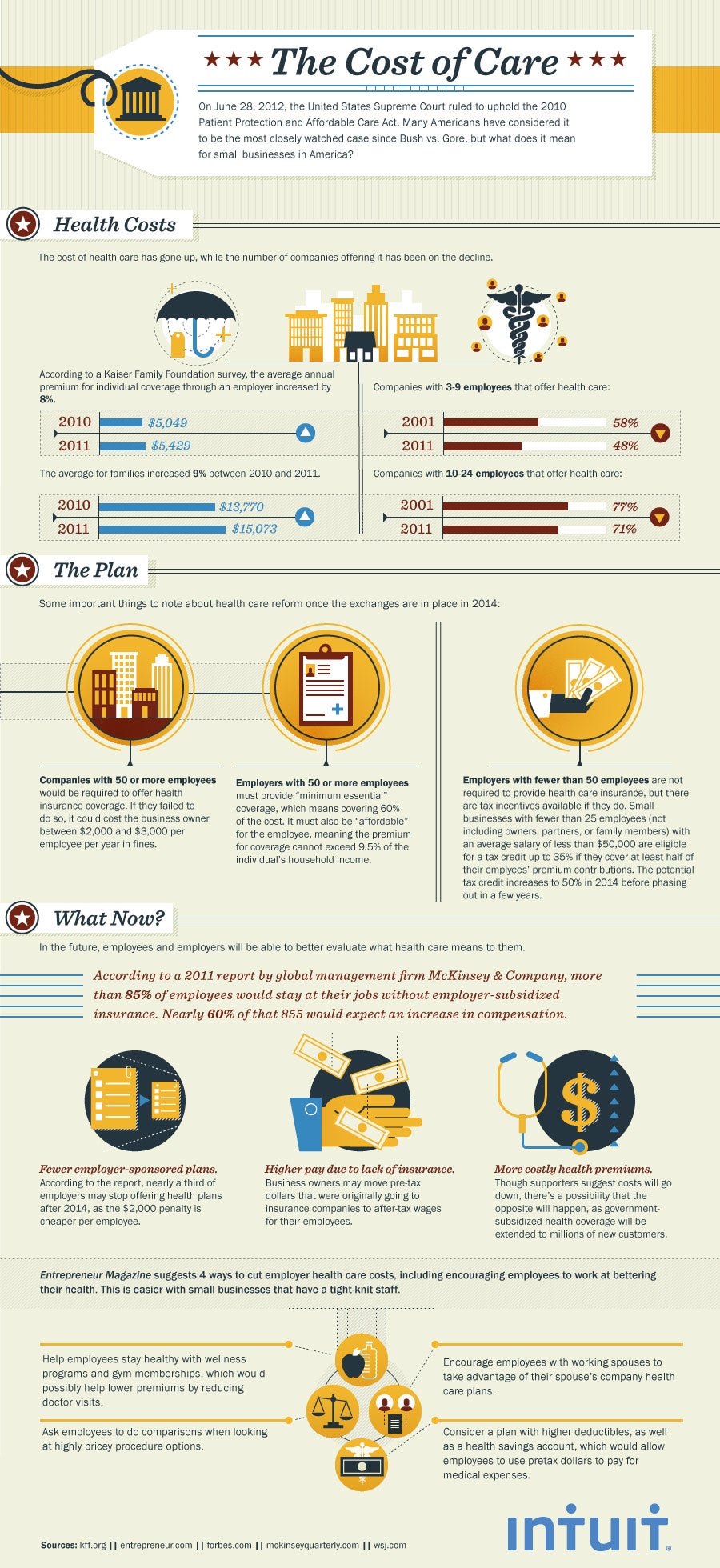What Obamacare Means for Your Business (Infographic)
Opinions expressed by Entrepreneur contributors are their own.
In the past few years, the cost of health care for employees in the U.S. has gone up, while the number of small businesses offering health insurance has been on a slow decline, according to a Kaiser Family Foundation survey. The Patient Protection and Affordable Care Act, known as “Obamacare,” aims to reduce health-care premiums for both individuals and small businesses by increasing the number of healthy people with insurance.
Still, many parts of the law don’t sit well with small-business owners, especially the employer mandate, a requirement that employers with 50 or more workers must offer health-insurance coverage or face fines ranging from $2,000 to $3,000 per employee per year.
Related: How the U.S. Supreme Court’s Ruling to Uphold ‘Obamacare’ May Affect Small Businesses
For a breakdown of the health-care costs your business will face and insight on the future of healthcare for small-business owners and their employees, take a look at the infographic below from the accounting software firm Intuit.

In the past few years, the cost of health care for employees in the U.S. has gone up, while the number of small businesses offering health insurance has been on a slow decline, according to a Kaiser Family Foundation survey. The Patient Protection and Affordable Care Act, known as “Obamacare,” aims to reduce health-care premiums for both individuals and small businesses by increasing the number of healthy people with insurance.
Still, many parts of the law don’t sit well with small-business owners, especially the employer mandate, a requirement that employers with 50 or more workers must offer health-insurance coverage or face fines ranging from $2,000 to $3,000 per employee per year.
Related: How the U.S. Supreme Court’s Ruling to Uphold ‘Obamacare’ May Affect Small Businesses
For a breakdown of the health-care costs your business will face and insight on the future of healthcare for small-business owners and their employees, take a look at the infographic below from the accounting software firm Intuit.






